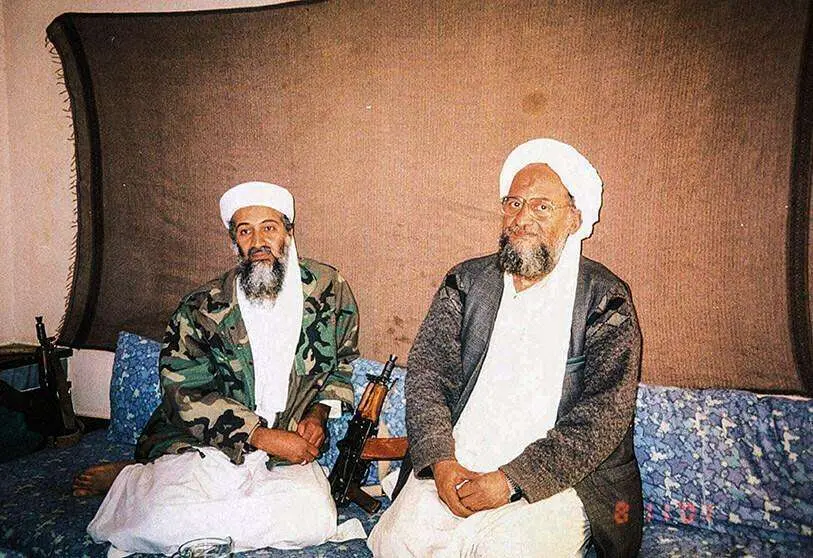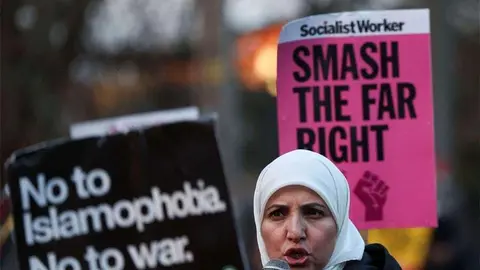Political Islam in Europe: Balancing freedom of belief and democratic integrity

- A changing European landscape
- The Muslim Brotherhood... Who are they?
- Mechanisms of action of political Islam in Europe
- Legal and political challenges
- Response strategies: a comprehensive approach
- Spain as a model
- Conclusion: defending citizenship against political Islam
While this diversity reflects the richness of European societies, it also poses growing challenges at the political and social levels, especially with the expansion of the influence of political Islam in certain areas.
Political Islam is not limited to individual religious practice, but seeks to exploit democratic freedoms to achieve political and ideological goals that conflict with the fundamental principles of liberal democracy.
This report aims to analyze this phenomenon in depth, explaining the mechanisms of political Islam in Europe, its impact on European societies, and its influence on the balance between democratic values and freedom of belief.
A changing European landscape
Since the mid-20th century, Europe has undergone major demographic changes due to increased immigration from Muslim-majority countries, making Islam one of the main components of European societies. Over time, these communities have developed into diverse religious and cultural structures.
However, this multiculturalism has brought with it new challenges, including the rise of political Islam.
This is not simply reflected in the religious participation of some individuals, but involves the emergence of movements that seek to influence politics by using religion as a tool to build social and cultural networks that reinforce their ideologies.
In this context, political Islam becomes a matter of high strategic importance, both because of its attempts to create parallel political identities and because of its influence on European civil society institutions.
The Muslim Brotherhood... Who are they?
The Muslim Brotherhood is an extremist Islamist movement founded in Egypt in 1928 by Hassan al-Banna, with the aim of reviving political Islam through the application of Sharia law and the establishment of an Islamic state based on fundamentalist principles. It is one of the most influential Islamist movements and has inspired numerous extremist organizations.
One of its most influential ideologues, Sayyid Qutb, promoted violence as a necessary means of establishing the Islamic Caliphate. He believed that Western societies, secular governments, and even many Muslim societies were living in a state of “ignorance” that had to be eradicated by force in order to establish the Islamic State.
This thinking has profoundly influenced many terrorist organizations. In fact, several key figures in jihadist groups such as Al Qaeda—including Osama bin Laden and Ayman al-Zawahiri—were members or students of the Muslim Brotherhood, revealing a dangerous ideological connection between this organization and violent extremism.
Mechanisms of action of political Islam in Europe
Political Islam in Europe operates mainly through existing civil networks in democratic states. These networks include charitable associations, Islamic schools, mosques, and cultural centers that promote a politicized Islamic identity that is often contrary to European secular values.
Among the most prominent actors is the Muslim Brotherhood, which began its activity in Europe in the middle of the last century and has gained influence to become a prominent feature of the European Islamic landscape.
A report by the Brussels Center for Political Studies (2024), citing researcher Lorenzo Vidino, director of the Extremism Program at George Washington University, notes that these organizations employ a strategy of “gradual cultural domination” to build educational and social environments aligned with a vision of Islam incompatible with European democratic values.
Vidino explains: “Political Islam does not necessarily depend on violence, but on long-term impact through civil institutions.”
In countries such as France, the influence of the Muslim Brotherhood in many mosques and Islamic associations has been documented, raising concerns about the foreign origin of their funding.
In Spain, a study by the Elmo Institute (2023) shows significant growth in Islamic associations financed from abroad, raising questions about the political and cultural agenda that this funding promotes.
Legal and political challenges
Political Islam represents a complex dilemma for European governments in terms of legislation and policy. One of the main obstacles is the lack of a unified legal definition of political Islam, which limits the ability of states to implement effective controls.
Some actors take advantage of this ambiguity to spread discourses that are outwardly open but essentially promote fundamentalist ideologies that reject integration into civil society.
A study published by the Global Policy Institute (2024) warns, in the words of Italian researcher Alessandro Arvilli, that treating political Islam exclusively as a security problem may be ineffective, as it “infiltrates the civic fabric through civil institutions and social activities.”
In Spain, although political Islam is still in its infancy, there is growing concern about the number of Islamic associations funded by Middle Eastern actors that support radical Islamist movements.
According to data from the Center for European Studies (2024), 15% of Islamic associations in Spain receive external funding without disclosing the source of those funds.
Response strategies: a comprehensive approach
To address the challenge of political Islam, Europe must adopt a multidimensional approach combining legal, cultural, and social measures.
1. Common legal framework: It is essential to develop European laws prohibiting the political activities of groups such as the Muslim Brotherhood, thereby limiting their ability to exploit civil institutions.
2. Promoting moderate Islam: Moderate Muslim communities in Europe should be supported by promoting a religious identity compatible with democratic values. This includes educational programs that foster a more tolerant and inclusive view of Islam.
3. Control of external funding: surveillance of foreign funds received by Islamic associations needs to be stepped up, ensuring that they are used for purposes consistent with European civic values through transparent mechanisms.
Spain as a model
Thanks to its history of cultural pluralism and openness, Spain can offer an effective model for managing political Islam. The country, which has faced similar challenges in its recent history, has the tools to integrate cultural and religious diversity within a democratic framework.
Spanish analyst Juan José Escobar argues that “Spain can become a successful model of diversity management without giving in to extremist ideologies.”
Spain has the opportunity to design balanced policies that respect religious freedom while protecting the values of democratic citizenship. This could make it a useful reference point for other European Union countries.
Conclusion: defending citizenship against political Islam
The presence of Islam in Europe does not represent a challenge in itself. The real challenge arises when certain political Islamist movements exploit religion for political ends that contradict the fundamental values of democracy.
Combating political Islam does not mean opposing Muslims, but rather protecting the principles of citizenship and civil rights from ideological projects that seek to impose religious or political hegemony.
Through comprehensive strategies that address this issue from multiple angles, Europe can respond effectively. Spain, with its rich experience in managing pluralism, can play a leading role in promoting a model of religious and social coexistence within a democratic framework that guarantees rights and freedoms for all citizens and prevents the political use of Islam by extremist groups that threaten peace and understanding between cultures.









